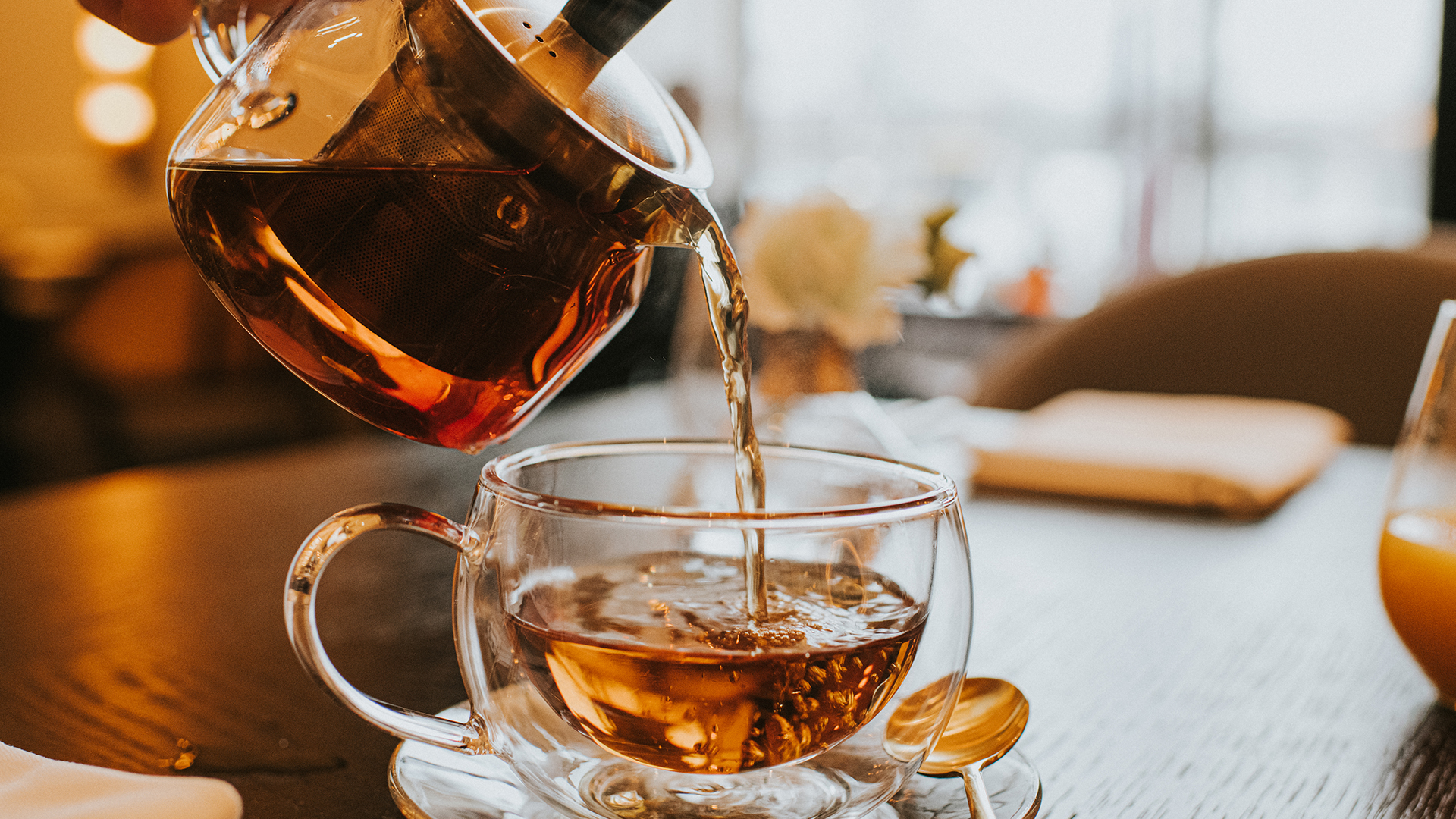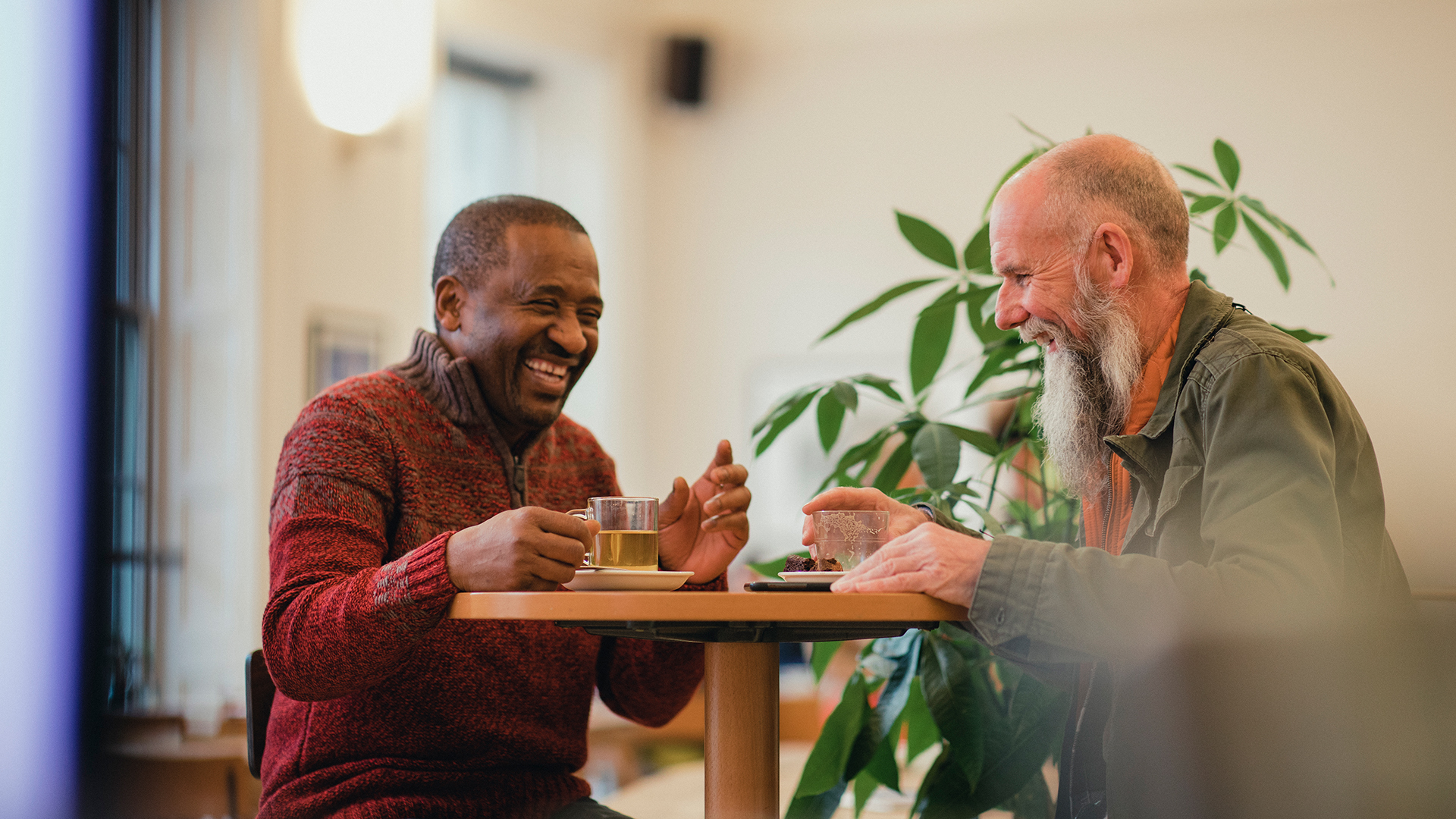
When temperatures climb, many people reach for ice-cold beverages to cool down. But others put the kettle on: Hot tea is a go-to beverage year-round in countries such as Bangladesh, India, Japan and Saudi Arabia. Many people find hot tea refreshing on hot days — and in traditional Chinese medicine, specific teas are said to have cooling properties even when consumed hot. But can hot drinks really cool you down on a hot day?
It turns out, hot drinks can indeed have a cooling effect on the body, but it depends on the context, experts told Live Science.
According to Peter McNaughton, a professor of pharmacology at King's College London who studies thermoregulation, hot drinks really can cool you down. "It seems totally counterintuitive," McNaughton told Live Science. Still, "Drinking a hot drink really does make you drop your temperature" if it's not too humid out, he said.
If a drink is warmer than the body, at first, "Obviously, that drink makes you hotter," McNaughton said. But humans, like all warm-blooded animals, are constantly adjusting to maintain a consistent internal temperature. McNaughton found that hot drinks (and spicy chilis) activate a receptor in our nerves called TRPV1, which tells the body it needs to cool down. In response, humans sweat.
Sweat pooling on skin is uncomfortable, but add a breeze or a fan, and the air blowing past helps sweat evaporate, taking heat with it. In general, McNaughton said, "Your life depends on sweating." Sweating can help humans survive in some of the highest temperatures documented on Earth, at least in dry heat. Sweat is less effective in high humidity because the air is already full of water vapor and can't absorb as much from the skin; that's why in high humidity, the survivable temperature is much lower.
Related: What's the hottest temperature the human body can endure?
A 2012 study in the journal Acta Physiologica found that when sweat fully evaporates, hot drinks can help cool people off overall, at least temporarily. That study looked at cyclists biking quickly enough to create their own breeze in a climate with no humidity: ideal conditions for sweat evaporation.
In the reverse effect, cold drinks lower body temperature and then nudge the brain to reduce sweating in order to bring body temperature back to its baseline. A 2018 paper suggests that with less wind, more humidity, or other barriers to effective sweating — like the heavy clothing worn by firefighters — it may make more sense to cool off by drinking crushed ice. "Cold water will definitely make your body colder," McNaughton said. "It will tend to suppress sweating as well. If you're already dripping with sweat, that may be rather nice!"
There's another, crucial way that hot drinks can keep people cool: by keeping us hydrated enough to sweat in the first place. In normal circumstances, the body can quickly compensate for a hot chai or a cold milkshake — but it can't compensate for a lack of fluids. "The number-one priority: hot drink, cold drink, room-temperature drink — forget about that," McNaughton said. "Just drink."
Cini Bhanu, a clinical research fellow at University College London, studied hydration among older people in the U.K., for whom hot, caffeinated tea is often the drink of choice. "They drink a cup of tea thinking, 'Oh, I should just be drinking water," Bhanu told Live Science. But "If you are drinking no cups of water but 10 cups of tea, that's still great for your hydration status." Because the ability to sense thirst decreases with age, Bhanu suggests that older people drink throughout the day, regardless of whether they feel thirsty. Tea drinkers who add cream, sugar, or salt get an added benefit: they are replacing some of the electrolytes lost through sweating in the same way that sports drinks do.

Matt Brearley, who consults on workplace heat, has also seen misconceptions around drink temperature and hydration — but in the other direction. In a 2017 study in the journal Safety and Health at Work, he found that while many outdoor workers prefer cold water, they often avoid it because they think the cold will shock their systems. Because of this belief, they drank less overall and were less hydrated. Like Bhanu, Brearley recommended that people should feel confident sticking with their preferences in order to stay hydrated. But he also noted that hydration is not enough to keep outdoor workers cool on the hottest days: they also need other supports, such as longer rest breaks and access to air conditioning.
Brearley works in a hot, humid part of Australia, where extra sweat won't help workers cool down. He recommended people avoid drinking hot drinks while experiencing heat stress — which occurs when the body is unable to get rid of extra heat — but he said that this scenario is uncommon. While people may enjoy hot tea in the summer while they are resting, far fewer people choose it while working outside. "Where workers are free to consume their preferred fluid temperature," he wrote in an email, "tropical-based workers strongly prefer cool or cold fluids."







